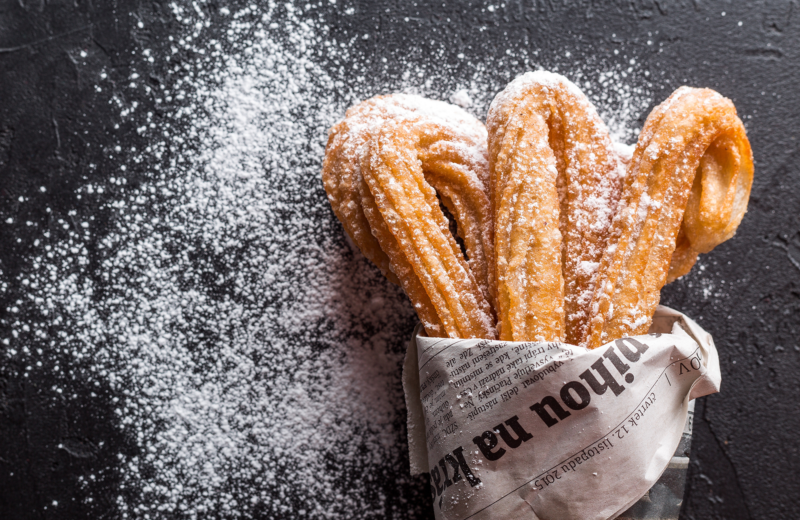There is no hiding that fact that it is socially accepted, legal, and in just about everything that you are going to ever eat. You more than likely reward your kids with it, eat more of it during the holiday season, and even for doing a good job in school. You also reward yourself with it as well, maybe after having a rough or stressful day at work or celebrating a friend’s birthday or some kind of special achievement. You add extra sugar to your coffee, use it to make some delicious baked treats, and may even spoon it over your breakfast. You love that delicious sweet stuff, but heck, so does everyone else. As a matter of fact, your probably crave it at certain times throughout your day or maybe even all the time. But are you addicted to it?
More and more studies that are being done on the sweet stuff, sugar, is revealing more results telling about how addictive eating sugar can really be, comparing it to several street drugs, those of which have a very similar effect on your brain. This means that sugar affects your brain the same exact way that some street drugs do.
According to Alan Greene, M.D., who is a child’s health and wellness professional, as well as the author of several books that includes ‘Feeding Baby Green’ and ‘Raising Baby Green,’ he says “Addiction is a strong word. In medicine, we use ‘addiction’ to describe a tragic situation where someone’s brain chemistry has been altered to compel them to repeat a substance or activity despite harmful consequences. This is very different than the casual use of ‘addiction’, for example, I’m addicted to Game of Thrones.”
Greene continues on to say, “So, I’m serious when I say that evidence is mounting that too much added sugar could lead to true addiction.”
What Exactly Is An Addiction?
The main link that exists between consuming sugar and addictive behavior is going to be tied to the fact that when you are eating sugar, your brain is going to release dopamine and opioids.
Dopamine is one of the neurotransmitters that is released by your brain whenever there is some type of ‘reward circuit’, which leads it to be heavily associated with your addictive behavior. When you have a certain behavior that will cause some type of excessive release of dopamine, you are going to experience a very pleasurable ‘high’ feeling that you are going to want to re-experience, hence repeating the behavior that made you feel so pleasurable in the first place. The more you repeat this certain behavior, your brain will adjust accordingly so that it starts to actually release less dopamine when the behavior is experienced. This then means that for you to feel the original ‘high’ feeling, you are going to need to repeat the behavior more frequently and in increasing amounts. This is what substance abuse is.
Research has continuously shown that sugar can be even more dangerous and addictive than cocaine. When you consume sugar, it activates your opiate receptors that are in your brain and affect your reward center, leading to much more compulsive behavior, despite any of the negative consequences that come with it, such as headaches, weight gain, and hormone imbalances just to name a few.
Studies also suggest that every single time that you do eat sweets that are made with sugar, you are actually going to help reinforce those same neuropathways, which causes your brain to start becoming more and more hardwired to craving sugar, helping your body build up a tolerance, working just like many illegal street drugs.
Research that has been done on rats at Connecticut College, has proven that Oreo cookies will activate many more neurons in their brain’s pleasure center, than when they consume cocaine. And in case you were wondering, yes, the rats too go straight for the crème filling first. Another study that was done in Princeton in 2008, discovered that under the right circumstances, not only would the child rats become very dependent on sugar, but they would also display several other side effects of addiction, those including binging, withdrawal, and excessive cravings.
What makes these claims about sugar even more serious, is that there are even researchers in other countries, such as France, who agree with the claim that there is a casual link when it comes to consuming sugar and doing illegal drugs. They agree with the fact that there is not only truth to it, but they have even determined that the level of rewards that you will experience after you consume sugar, is actually more attractive and rewarding than using cocaine.
While some of the stories that have been in the press about how Oreos are more addictive than using cocaine may have been slightly overstated, you should not take the relationship between consuming sugar and the craving to eat it over and over, very lightly. With all of the negative side effects that become present within your body when you do consume sugar, you must be careful to not let it rob you of your health.
As if sugar weren’t bad enough for you, according to some of the recent studies that have been done on the topic, when you are addicted to sugar, it can be even harder to treat and break that addiction. And with sugar being much more socially acceptable, prevalent, and much easier to get than alcohol or amphetamines, it is also much harder to avoid it.
When it comes to the question of whether or not sugar is more addictive than cocaine is, both nutritionists and researchers are in agreement that it is. Sugar simply has addictive properties and you should consume as small amount of it as possible, ideally not consuming any at all.
What’s ‘Added Sugar’ All About?
WHO, or the World Health Organization, has been warning people about the dangers of consuming too much sugar since 1989. They recommend reducing your intake of any ‘free sugars’ to lower than 10 percent of your daily total caloric intake. When you do this, you will also be lowering your risk for becoming obese or overweight, as well as reducing your chances for experiencing tooth decay. What is meant by ‘free sugars’, are sugars that include naturally occurring sugars that can be found in fruit juice, honey, and sugars that have been added to drinks and foods. On the food label, some of the added sugars will include the use of words like corn syrup, dextrose, sucrose, glucose, brown sugar, and maltose, just to name a few. A good rule of thumb is to try to avoid any foods that contain ingredients that you have trouble pronouncing as well.
Moving forwards to 2015, the WHO took into account newer research that had been released on the effects of sugar and your health, deciding that the free sugar intake should be reduced by at least half, or less than 5 percent of your daily intake of calories, or roughly about 6 teaspoons. Just to paint the picture, in the United States, the total average daily sugar intake composes of roughly 14 percent of their caloric intake.
Most of this sugar consumption is in the form of sugary beverages, those which include various energy drinks, alcoholic beverages fruit drinks, sodas, and sweetened teas and coffee. The next leading sugary source would be snacks. Now these are not just the most obvious perpetrators such as cookies, ice cream, brownies, and doughnuts, but the food items that you wouldn’t think would have the high amounts of sugars that they actually do. These include things such as salad dressing, bread, fat free foods such as yogurts, and even granola bars.
In fact, one survey that was done discovered that an astonishing 95% of all the cereals, granola bars, and drinks sweetened with sugar, had some form of high-calorie sweetener in it. These high-calorie sweeteners mainly came in the form of sorghum, cane sugar, and corn syrup.
While it is not a big secret that you must eat food in order to stay alive, it is also unrealistic to think that you can simply ‘quit’ sugar. In today’s society, sugar has managed to find its way into everything, in one way or another. But at the same time, you are also not meant to subject your body to such concentrated amount of sugar either.
The good news here, is that you can teach your body and your taste buds to not crave sugar. When you reduce the amount of sugar that you consume, especially when it comes to concentrated sugars, it will not only reduce the amount that you ingest and all of the related negative side effects that come along with it, but it will also help make the sweet foods that you are used to eating, seem like they are much sweeter. This means that you will not be tempted to eat them as often, as you will think that they are too sweet to eat.

